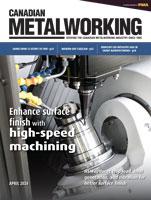President
- FMA
- The Fabricator
- FABTECH
- Canadian Metalworking
Do Your Diligence: Part I
A due diligence review is essential during a business acquisition
- By Mark Borkowski
- October 1, 2016
Editor’s Note: This article is the first in a two-part series that will outline why a due diligence review is important when purchasing a business and how to prepare for the review.
When you consider acquiring a business, it is essential that you engage a professional with the necessary expertise and experience to perform a due diligence review (DDR). This will always significantly reduce your risk.
“I have, on many occasions, found sufficient evidence in the review process that resulted in my clients withdrawing from the deal,” explained James Phillipson, a founding principal of Mastermind Solutions. “My findings convinced them of evidence of potential loss of their entire investment. In addition, there is often additional information that warrants an adjustment to the purchase price and the terms in the letter of intent.”
The letter of intent (LOI) sets out the key terms of the offer that includes the right to do a DDR. Even if the LOI is binding on the purchaser, a DDR still is essential because it provides the purchaser with information about the business that reduces the risks inherent in every acquisition and enables the purchaser to plan for the numerous aspects of the business they will soon be managing.
A lawyers’ review of the legal documents and agreements should not replace a DDR, however. A DDR is much more comprehensive and reviews many strategic areas of the business.
What Is Included in a DDR?
A comprehensive DDR covers all aspects of the business that are likely to entail risk for the purchaser.
The reviewer team leader discusses with the purchaser the scope of the DDR, aspects of possible concern that are to be covered or excluded. An extensive checklist is utilized to ensure that nothing material is omitted.
It is not uncommon for the purchaser’s staff to participate in the DDR. In some cases, specific technical expertise is necessary to perform the review, or detailed information is obtained to facilitate the transition after closing. Also, the purchaser may want to include staff to manage the cost of the DDR by spreading out the workload and reducing the workload.
The DDR commences with obtaining a list of documents and other material that can be anticipated. During the process, the reviewer reviews documentation and provides copies for the purchaser’s lawyers and other specialists in preparation for the agreement of purchase and sale. In addition, the reviewer often adjusts the normalized earnings that have been used in the calculation of the purchase price and refines any forecasts that the purchaser has prepared of future earnings, cash flows, working capital required, and other key metrics.
“The savings in costs, combined with the benefits of having a list of issues that need to be managed, will exceed the cost of the DDR,” said Phillipson.
But what happens when a DDR does not run smoothly?
The reviewer may find significant and unexpected issues the seller cannot quickly resolve. If this is the case the purchaser will be provided with a report setting out the issues and the expected impact, along with possible steps to mitigate them, including renegotiation of the purchase price or abandoning the acquisition.
How the vendor responds to found problems can have a material impact on the result when the items accumulate. The risk of the DDR continuing for a longer period than anticipated usually has a much bigger effect on the seller. It is common for the vendor and their senior staff to neglect day-to-day operations of the business as they attend to the issues that arise out of a DDR.
A DDR that extends over a period of time help the purchaser keep a vigilant eye on the key performance indicators of the business. If these indicators start slipping, the DDR provides fodder for the purchaser to renegotiate the purchase price to reflect those lower results and the increased risk to the purchaser.
A DDR is an essential part of the process in acquiring a business. A professional reviewer will always find issues by digging through the records and using their business experience. The result of the review will impact the purchaser by providing information to be used in finalizing the acquisition, facilitating a smooth transition, and mitigating risk.
Mark Borkowski is president of Mercantile Mergers & Acquisitions Corporation, mark@mercantilema.com, www.mercantilemergersacquisitions.com.
subscribe now


Keep up to date with the latest news, events, and technology for all things metal from our pair of monthly magazines written specifically for Canadian manufacturers!
Start Your Free SubscriptionAbout the Author
- Industry Events
MME Winnipeg
- April 30, 2024
- Winnipeg, ON Canada
CTMA Economic Uncertainty: Helping You Navigate Windsor Seminar
- April 30, 2024
- Windsor, ON Canada
CTMA Economic Uncertainty: Helping You Navigate Kitchener Seminar
- May 2, 2024
- Kitchener, ON Canada
Automate 2024
- May 6 - 9, 2024
- Chicago, IL
ANCA Open House
- May 7 - 8, 2024
- Wixom, MI





















